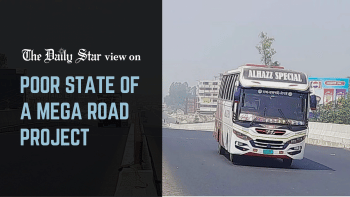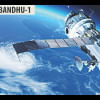A sheer waste of public money

It is disappointing to see the woeful state of the much-advertised Bangabandhu-1 satellite, which was launched in 2018 at a cost of around Tk 3,000 crore. Reportedly, the Bangladesh Satellite Company Limited (BSCL), which was formed to operate the satellite, has not yet been able to make any profit from this project. Worse still, for all the losses it has incurred since, it has not shown that in its records. According to BSCL's last audit report (2021-22), its profit was Tk 85 crore; however, if the depreciated cost of the project is taken into account, its annual loss would stand at Tk 66 crore. Moreover, the delay in launching the satellite had led to an increase of project cost by about Tk 200 crore. The question is, was its financial feasibility thoroughly assessed before approving this costly project?
In its feasibility study, it was projected that the capacity of the satellite could be sold to Indonesia, the Philippines, SAARC countries, Kazakhstan, Tajikistan and some other countries. But the Awami League government failed to create a market in these countries over the last seven years. This indicates that the project's feasibility was not studied properly. Also, due to some technical issues, Bangladesh has not been able to acquire the landing rights in those countries, meaning that the satellite has remained largely underutilised. In the process, it has truly become a white elephant, for which citizens are having to pay.
Unfortunately, this is not the only prestige project undertaken by the old regime without careful consideration of national interests. We can talk about the energy projects like Matarbari or Rampal power plants. Recently, the energy adviser has termed the Matarbari project as a "luxury project" with little benefit for ordinary people. Experts also repeatedly warned about the environmental costs associated with the Rampal project built in the Sundarbans. As such, we expect the interim government to critically re-evaluate all such projects draining national coffers and take decisive actions about them.
Regarding the Bangabandhu-1 satellite, the government should investigate why the project has failed to take off even after all these years and see if it is still feasible to operate. It should also hold to account officials involved with the project for failing to reap its benefits. In the future, the government should refrain from taking up such prestige projects and rather focus on initiatives that actually benefit the people in the long run. In a country where a large percentage of people still live below the poverty line, any wastage of money through ill-conceived projects is totally unacceptable.


 For all latest news, follow The Daily Star's Google News channel.
For all latest news, follow The Daily Star's Google News channel. 










Comments